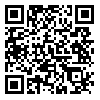Volume 21, Issue 4 (3-2024)
sjsph 2024, 21(4): 455-470 |
Back to browse issues page
Download citation:
BibTeX | RIS | EndNote | Medlars | ProCite | Reference Manager | RefWorks
Send citation to:



BibTeX | RIS | EndNote | Medlars | ProCite | Reference Manager | RefWorks
Send citation to:
Moghadasi M B, Rahimi Pordanjani T, Ameri Z. Hesitancy Toward COVID-19 Vaccine Among Medical University Staff: The Role of Mandatory Vaccination Policies and Corona Anxiety. sjsph 2024; 21 (4) :455-470
URL: http://sjsph.tums.ac.ir/article-1-6289-en.html
URL: http://sjsph.tums.ac.ir/article-1-6289-en.html
1- Ph.D. Assistant Professor, Department of Law, University of Bojnord, Bojnord, Iran
2- Ph.D. Associate Professor, Department of Psychology, University of Bojnord, Bojnord, Iran ,t.rahimi@ub.ac.ir
2- Ph.D. Associate Professor, Department of Psychology, University of Bojnord, Bojnord, Iran ,
Abstract: (575 Views)
Background and Aim: Vaccination, as one of the most cost-effective medical interventions, has significantly reduced the incidence of many infectious diseases. This study aimed to examine the moderating effect of mandatory vaccination policies on the relationship between corona anxiety and vaccine hesitancy among the employees of medical universities.
Materials and Methods: A descriptive-correlational study was conducted using convenience sampling on a sample of 152 employees selected from a medical university in North Khorasan Province, Iran. Data were collected using a researcher-made questionnaire on mandatory vaccination policies and vaccine hesitancy and Corona anxiety questionnaires. Pearson correlation coefficient and hierarchical regression were employed to test the research hypotheses, and data analysis was performed using the SPSS and AMOS software.
Results: The findings showed that 77% of the employees supported mandatory vaccination policies in the workplace. In addition, the correlation coefficients between Corona anxiety and mandatory vaccination policies with vaccine hesitancy were significant (p<0.001). Furthermore, the interaction of Corona anxiety and mandatory vaccination policies accounted for an additional 2% unique variance in the model (R2Δ=0.02, FΔ=4.02, p=0.05).
Conclusion: Based on the findings of this study it can be said that mandatory vaccination policies can moderate the relationship between Corona anxiety and vaccine hesitancy among employees of medical universities. It is, thus, recommended to use appropriate and cost-effective policies and executive guarantees to improve vaccination attitudes in employees with anxiety.
Materials and Methods: A descriptive-correlational study was conducted using convenience sampling on a sample of 152 employees selected from a medical university in North Khorasan Province, Iran. Data were collected using a researcher-made questionnaire on mandatory vaccination policies and vaccine hesitancy and Corona anxiety questionnaires. Pearson correlation coefficient and hierarchical regression were employed to test the research hypotheses, and data analysis was performed using the SPSS and AMOS software.
Results: The findings showed that 77% of the employees supported mandatory vaccination policies in the workplace. In addition, the correlation coefficients between Corona anxiety and mandatory vaccination policies with vaccine hesitancy were significant (p<0.001). Furthermore, the interaction of Corona anxiety and mandatory vaccination policies accounted for an additional 2% unique variance in the model (R2Δ=0.02, FΔ=4.02, p=0.05).
Conclusion: Based on the findings of this study it can be said that mandatory vaccination policies can moderate the relationship between Corona anxiety and vaccine hesitancy among employees of medical universities. It is, thus, recommended to use appropriate and cost-effective policies and executive guarantees to improve vaccination attitudes in employees with anxiety.
Keywords: Corona Anxiety, Mandatory Vaccination Policies, Vaccine Hesitancy, COVID-19, Medical University Staff.
Type of Study: Research |
Subject:
Public Health
Received: 2024/07/24 | Accepted: 2024/03/19 | Published: 2024/03/19
Received: 2024/07/24 | Accepted: 2024/03/19 | Published: 2024/03/19
Send email to the article author
| Rights and permissions | |
 |
This work is licensed under a Creative Commons Attribution-NonCommercial 4.0 International License. |





